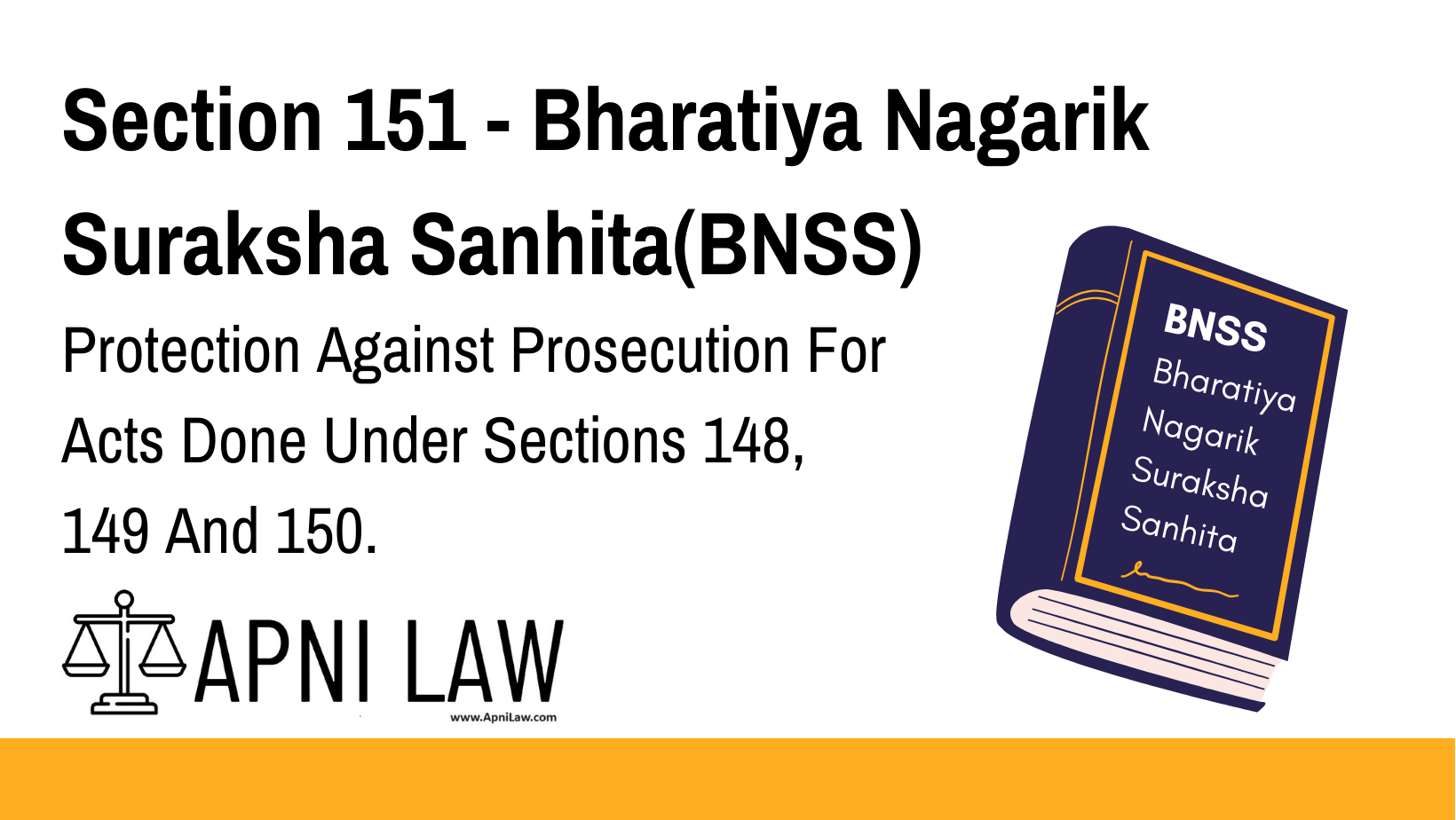Code
(1) No prosecution against any person for any act purporting to be done under section 148, section 149 or section 150 shall be instituted in any Criminal Court except—
(a) with the sanction of the Central Government where such person is an officer or member of the armed forces;
(b) with the sanction of the State Government in any other case.
(2) (a) No Executive Magistrate or police officer acting under any of the said sections in good faith;
(b) no person doing any act in good faith in compliance with a requisition under section 148 or section 149;
(c) no officer of the armed forces acting under section 150 in good faith;
(d) no member of the armed forces doing any act in obedience to any order which he was bound to obey, shall be deemed to have thereby committed an offence.
(3) In this section and in the preceding sections of this Chapter,—
(a) the expression “armed forces” means the army, naval and air forces, operating as land forces and includes any other armed forces of the Union so operating;
(b) “officer”, in relation to the armed forces, means a person commissioned, gazetted or in pay as an officer of the armed forces and includes a junior commissioned officer, a warrant officer, a petty officer, a non-commissioned officer and a non-gazetted officer;
(c) “member”, in relation to the armed forces, means a person in the armed forces other than an officer.
Explanation of Section 151 BNSS
Purpose of the Provision
Section 151 provides legal immunity to officials and members of the armed forces, police, and magistrates for actions taken in good faith under Sections 148, 149, and 150 of the BNSS. The section ensures that no frivolous or arbitrary prosecution can be initiated without government sanction.
Key Highlights
- Government Sanction is Mandatory – No prosecution can be initiated without prior approval from the Central or State Government.
- Protection for Good Faith Actions – Officials executing lawful duties under Section 148-150 are protected from legal action.
- Preliminary Enquiry Requirement – No case under Section 174 BNSS can be registered without an initial enquiry into the matter.
- No Arrest Without Consent – Officers of the armed forces and police cannot be arrested without explicit government consent.
Illustration
Scenario 1:
A police officer disperses a violent crowd under orders issued under Section 148 BNSS. If a complaint is filed against the officer for excessive force, prosecution cannot proceed without sanction from the government.
Scenario 2:
A subedar in the army follows an official order to control a riot under Section 150 BNSS. Later, someone files a case against him for using force. Under Section 151 BNSS, he is protected as he acted under lawful authority.
Common Questions & Answers
Q1. Why is prior sanction required before prosecuting armed forces or police officers?
A1. Prior sanction ensures that officials acting in good faith while maintaining law and order are not subjected to unnecessary legal harassment.
Q2. Does this section provide complete immunity?
A2. No, it only protects good faith actions. If an officer acts with malice or outside legal authority, prosecution can still take place with proper government sanction.
Q3. Can a soldier refuse to follow orders under this provision?
A3. No, as long as the order is lawful, a soldier is bound to obey. However, if the order is illegal, the soldier may be required to justify non-compliance.
Q4. What does the term “preliminary enquiry” mean in this section?
A4. Before registering a case under Section 174 BNSS, authorities must conduct an initial review to verify if the act was done in good faith and under legal orders.
Conclusion
Section 151 BNSS plays a crucial role in protecting police officers, magistrates, and armed forces personnel from unwarranted legal proceedings for actions performed in their official capacity. However, it does not provide blanket immunity—malicious acts or abuse of power can still be prosecuted with government sanction.
For a detailed legal interpretation, visit ApniLaw.com.








